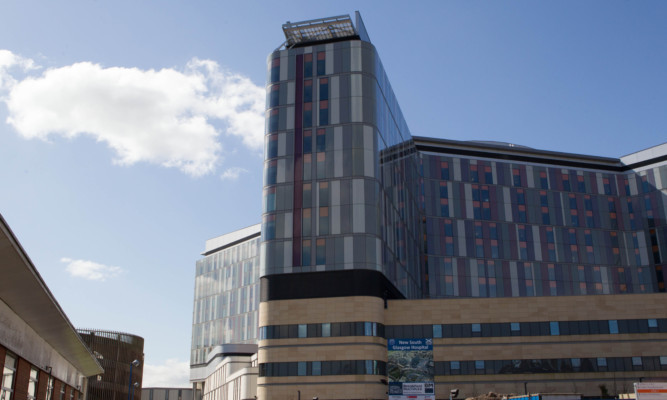Improvements have already been made at the immediate assessment unit in Scotland’s newest hospital following the death of an elderly man on a trolley after a six-hour wait for treatment, the Health Secretary has told MSPs.
Shona Robison visited the unit at the flagship Queen Elizabeth University Hospital in Glasgow today, where, she said, staff are working “very hard” to make changes.
NHS Greater Glasgow and Clyde said the unit had been “under pressure” when the elderly man attended earlier this month.
Patients who arrive at the hospital under referral from a doctor are first seen at the immediate assessment unit while those arriving without a referral are seen at A&E.
Ms Robison was questioned over waiting times at the unit and the performance of the hospital’s A&E department after figures published on Tuesday showed it is still falling below a key waiting-time target.
Scottish Conservative health spokesman Jackson Carlaw said: “Patients in the west of Scotland have been given a superior facility which has led to an inferior service.
“Since its opening, the hospital has been a constant source of major public concern, and that is not good enough for a £842 million investment.
“Despite a taskforce being announced in May, with the promise that things would be all well and good by the autumn, we seem no further forward.”
Labour’s Richard Simpson said there are 13 units across Scotland which are similar to the Glasgow hospital’s immediate assessment unit and are not subject to A&E waiting time monitoring.
“We now need to have a very clear explanation as to what is going on,” he said. “Will the Cabinet Secretary provide that in the form of a statement?
“These are no longer teething problems with this hospital, they are serious issues which may have long-term effects.”
Ms Robison said it is “absolutely essential” that the new hospital performs well.
“I absolutely, deeply regret the death of that elderly gentleman on a trolley,” she said. “That is unacceptable and, of course, a full review into his treatment has been initiated.
“Further developments around that immediate assessment unit have been taken forward.
“I visited the assessment unit this morning … and I can tell him (Jackson Carlaw) that staff are working very very hard to make those changes, and indeed the improvements from those changes are already visible.
“I take a daily interest in this issue because it is important that this hospital performs as it should.”
She told MSPs that NHS Greater Glasgow and Clyde was clear that the immediate assessment unit needs to be bigger than the modelling that was initially done.
“It is not about not enough staff at A&E, it is about the size of the immediate assessment unit not being big enough and having the capacity.”
She told Dr Simpson that work was already being done with the Royal College of Physicians to look at how such units could be standardised and monitored.
